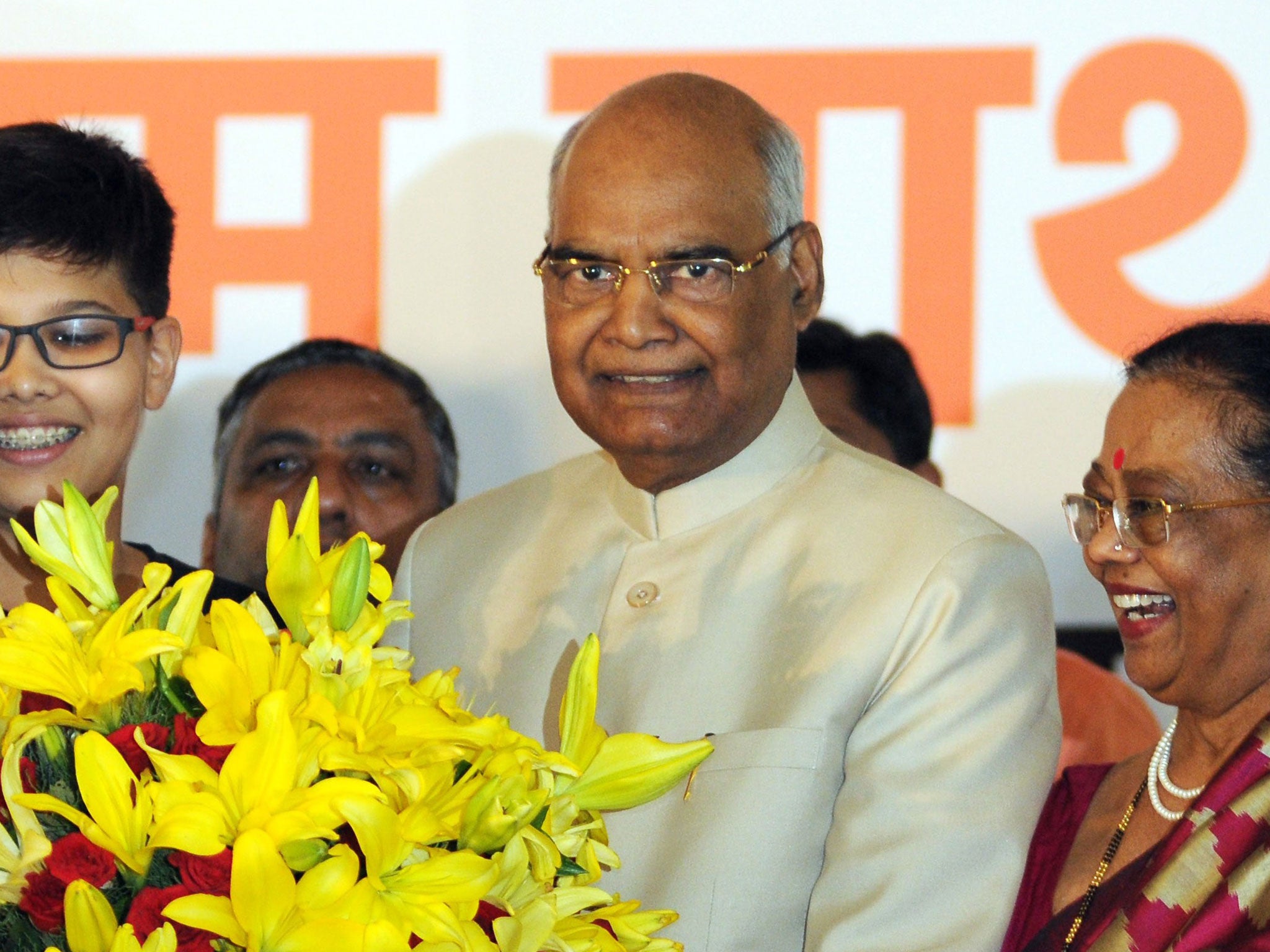Ram Nath Kovind: Member of India's lowest caste elected president
Role of president is a largely ceremonial position

A member of India’s ‘untouchable’ caste has been chosen as the country's new president.
Ram Nath Kovind, a politician backed by the ruling Hindu nationalist-led coalition, easily won India's presidential election on Thursday, tightening the government's hold on positions of power.
India's constitution provides a largely ceremonial role for the president, with the prime minister and his cabinet holding executive power.
But the president has a key role during political crises, such as when a general election is inconclusive, by deciding which party is in the best position to form a government.
Mr Kovind, 71, from the Dalit community - the lowest of India's centuries old caste hierarchy - beat the Congress party's Meira Kumar, also a Dalit by an overwhelming majority.
His election was considered a certainty because of the strength of Prime Minister Narendra Modi's party in the federal parliament and in the state assemblies whose members take part in a presidential election.
After his victory, Mr Kovind said it was "an emotional moment" for him and it will be his duty to uphold the rule of law.
India's constitution guarantees equal rights to all citizens regardless of faith.
Ms Kumar, the Congress candidate, said her candidature was aimed against the ideology that Mr Kovind represented and she had asked lawmakers to vote according to their conscience.
"My fight for secularism, the oppressed and the marginalised continues," she said.
Critics of Mr Modi's ruling Bharatiya Janata Party have long accused it of a deep-seated bias against the country's Muslims.
Mr Kovind's victory caps a series of top appointments by Mr Modi, strengthening the grip of the Hindu right on public offices, such as governors, state chief ministers and the heads of universities.
Dalits make up around 200 million of India's 1.3 billion population and are being wooed by Mr Modi's party as it prepares for the 2019 general election.
Reuters
Join our commenting forum
Join thought-provoking conversations, follow other Independent readers and see their replies
Comments
Bookmark popover
Removed from bookmarks